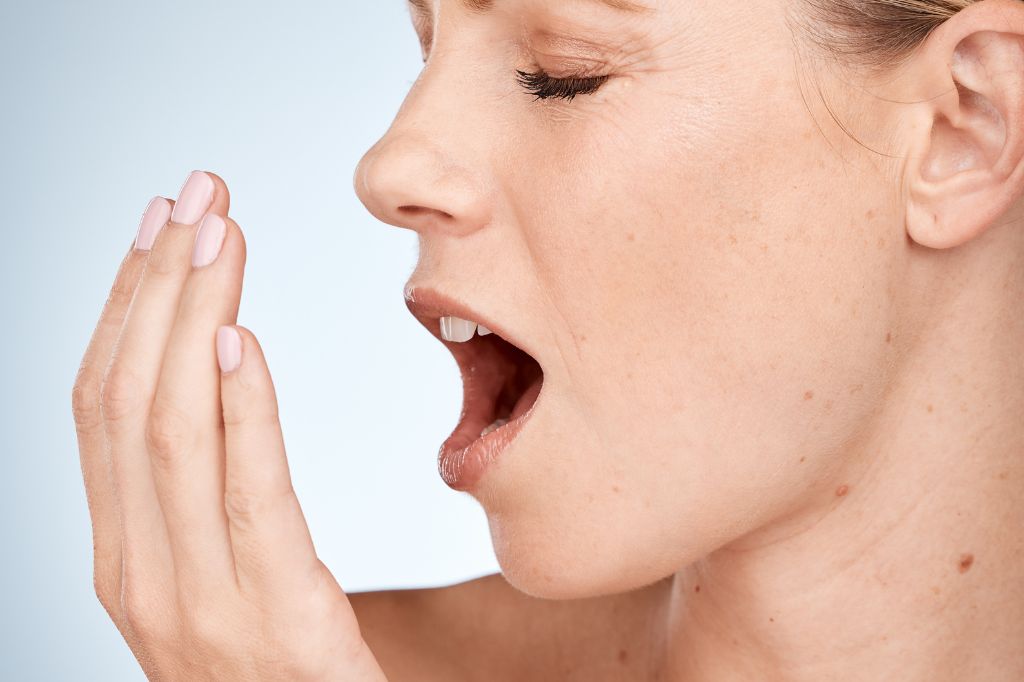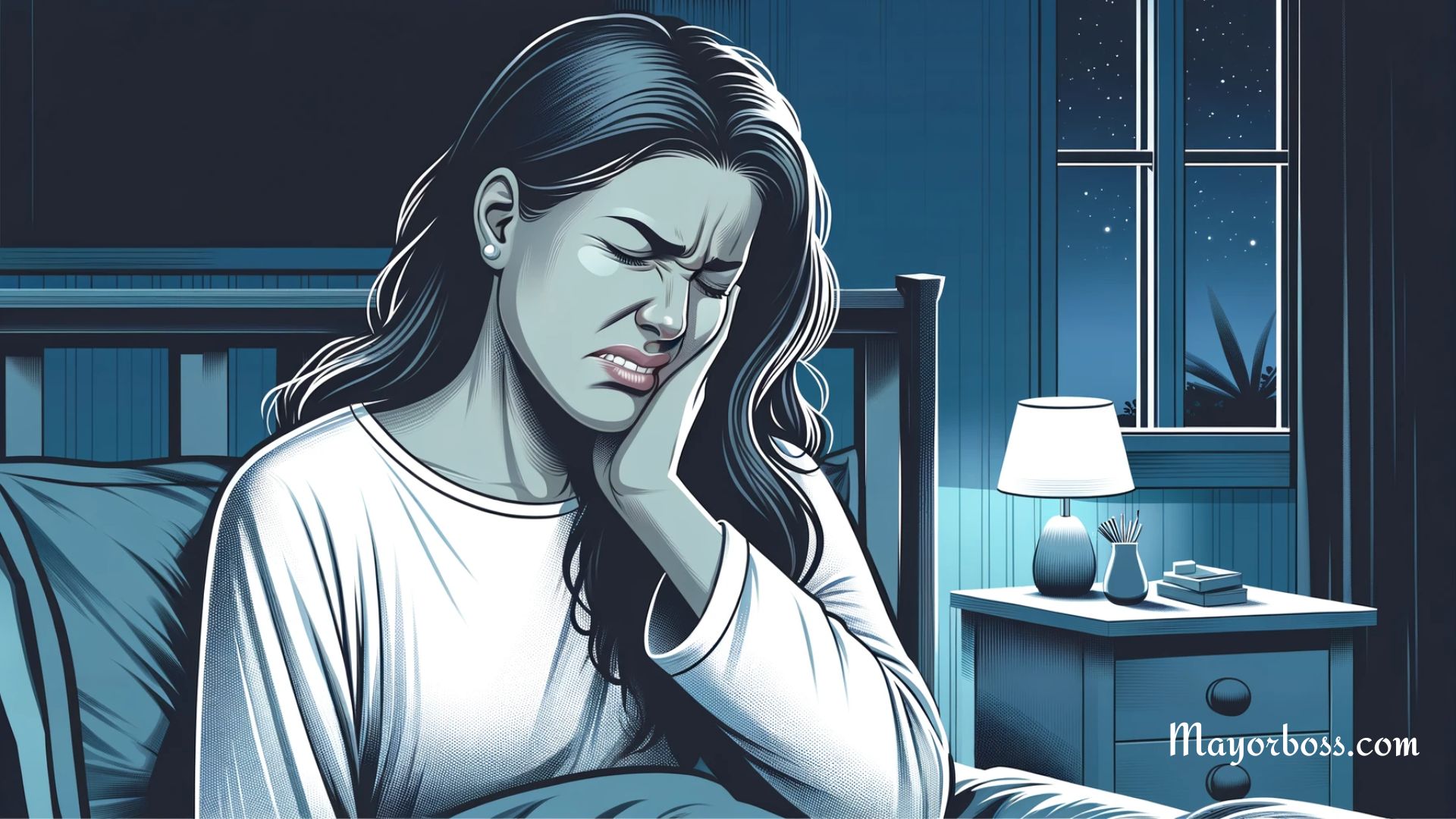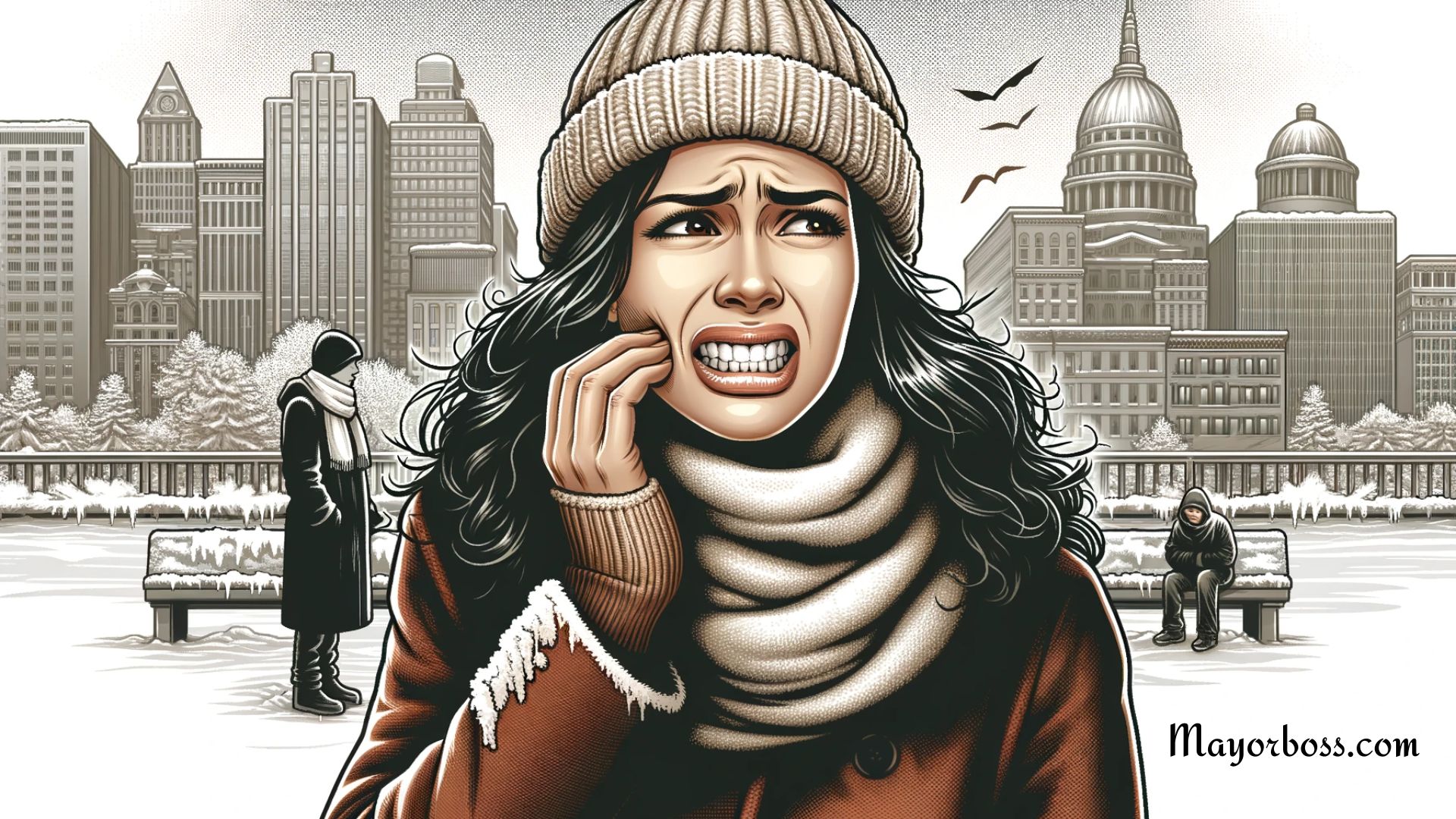7 Signs of Bad Breath
Common signs of bad breath

Many people are surprised to find out that they have bad breath when they’re told by someone else. Bad breath (halitosis) is often caused by bacteria in the mouth, and it’s not always obvious to the person who has it. That’s why it’s important to recognize the signs of bad breath so that you can address any underlying issues quickly and without embarrassment.
Here are six signs of bad breath that you should watch out for:
1. Unpleasant odor
Unpleasant smell in the air when breathing or speaking. This is often described as a sulfur-like, musty, rotten eggs or sweet-smelling odor. It can be pervasive and noticeable to those in close proximity.
2. Dry mouth
Saliva helps keep bacteria at bay, so when someone has a dry mouth, bacteria can accumulate and cause bad breath.
3. White or yellow coating on the tongue
This can be an indication of bacterial growth in the mouth.
4. Persistent bad taste
People with bad breath may experience a persistent metallic or sour aftertaste in their mouths that won’t go away no matter how much water they drink or the food they eat.
5. Bad breath in the morning
This is often a sign of an infection or dry mouth from sleeping, but it can also be caused by certain medications and/or lifestyle choices like smoking or drinking alcohol.
6. Excessively thick saliva
Saliva should be thin and watery, but thick saliva can be a sign of dehydration, infection, or poor oral hygiene. And you
Did you know that excessively thick saliva can be a sign of bad breath? When saliva becomes thick, it traps bacteria in the mouth, which can lead to an unpleasant smell.
7. Post-nasal drip or sinus
Post-nasal drip or sinus issues can lead to the build-up of bacteria in the mouth, which can cause bad breath. These conditions can irritate the nasal cavities and throat and increase mucus production in the nose, which then drains down the back of your throat, leading to a foul smell.
Why can’t you smell your own bad breath?
It’s an interesting question! According to scientists, the reason why you can’t smell your own bad breath is because of a phenomenon called “olfactory fatigue.” Your olfactory nerves become so used to smelling your breath that they are numbed to it and no longer pick up on the odor. The only way to know if you have bad breath is to ask someone else or use a breathalyzer.
What is the most common cause of halitosis?
The most common cause of bad breath is poor oral hygiene. Bacteria can build up if you don’t practice good oral hygiene, and it may cause a foul odor. In addition to improper oral hygiene, other causes of bad breath include:
- Smoking
- Drinking alcohol
- Post-nasal drip or sinus issues
- Dry mouth (xerostomia)
- Certain foods like garlic and onions,
- Diabetes and digestive issues.
How do you cure halitosis breath?
The best way to combat bad breath is by practicing proper oral hygiene, including:
- Brushing twice a day for two minutes at each session using fluoride toothpaste
- Flossing daily to remove food particles from between teeth and under the gumline
- Using dental picks or tongue scrapers
- Using mouthwash
- Drinking plenty of water
- Avoiding sugars and sweet drinks like soda
- Eating crunchy fruits and vegetables such as apples or carrots
- Visiting your dentist for regular check-ups
If you notice persistent bad breath despite good oral hygiene practices, then it may be time to visit your dentist so they can diagnose any underlying causes.
Learn more: How to Get Rid of Bad Breath






